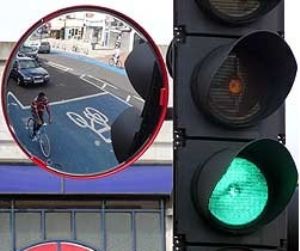It seems there's nothing more certain to get the male blood pressure going than sitting in a traffic jam. An intriguing, new scientific study has found that men's stress levels soar seven times higher than women’s when they are stuck in stationary traffic.
In a major study of hundreds of drivers, psychologists measured levels of stress chemicals in the saliva of male and female volunteers sitting in snarled up traffic. They discovered that men are far more likely to get hot under the collar about wasted and lost time - while women deal with the stress and pressure by switching off and listening to the radio.
While female stress levels went up by an average of just 8.7 per cent as they waited behind the wheel, the levels of chemicals in men went shooting up by 60 per cent.
According to the scientists behind the study, one explanation for the wildly differing results is that men are more reliant on the ‘fight or flight’ response to stressful situations. In other words, men want to either deal with the problem head on or walk away. In a traffic jam, you can't do either - hence their frustration.
Psychologist David Moxon, who carried out the research, warned that frustration could have a serious impact on male drivers making them drive erratically - and therefore dangerously. They also warned that most men are unaware of their rising blood pressure and the fact that it is putting their welfare - and that of other road users - at risk.
‘The fact that they are not always aware of this could indicate that driving regularly in dense traffic could have a profound effect on their health,' Moxon explained.
The best solution to the problem, he suggested, was that drivers avoid congestion altogether by planning ahead and using telematics devices.
For ordinary drivers that may mean a Sat Nav. For a professional driver in a truck or van, however, the best option is a tracking device. iBox technology devices like the 'Tele-mate' in particular allows drivers to stay in constant two-way communication with their fleet managers, who can alert them to traffic problems.
It's another way in which telematics devices not only looks after the safety and efficiency of vehicles, but also helps protect the health of drivers.
For more information about how our devices can help your business contact iBox technology today.












